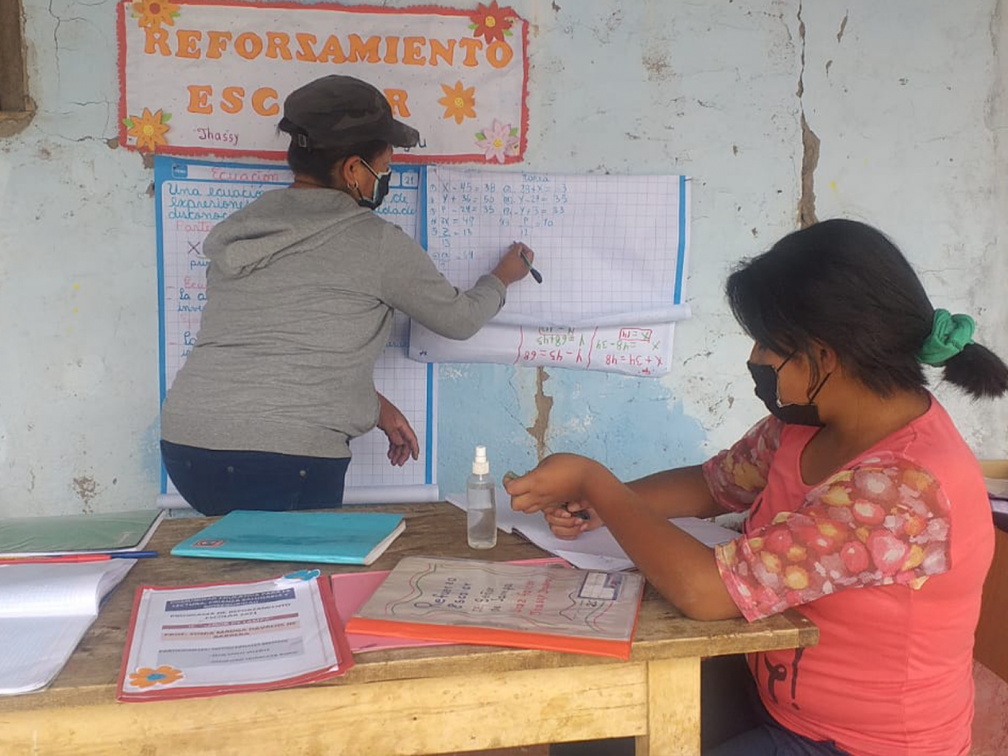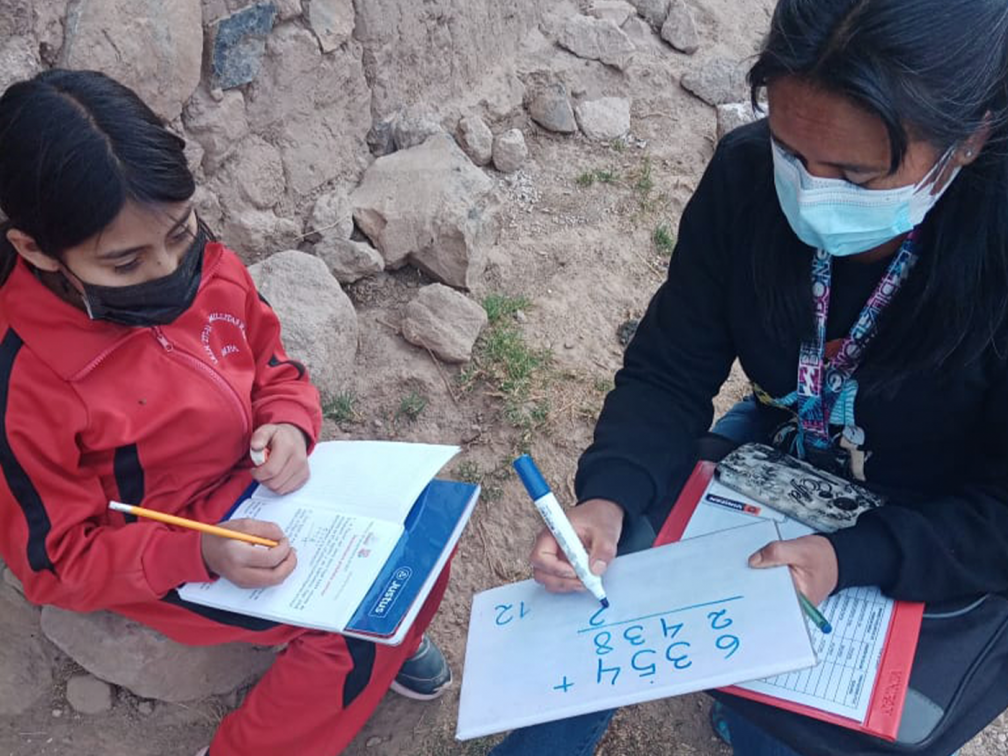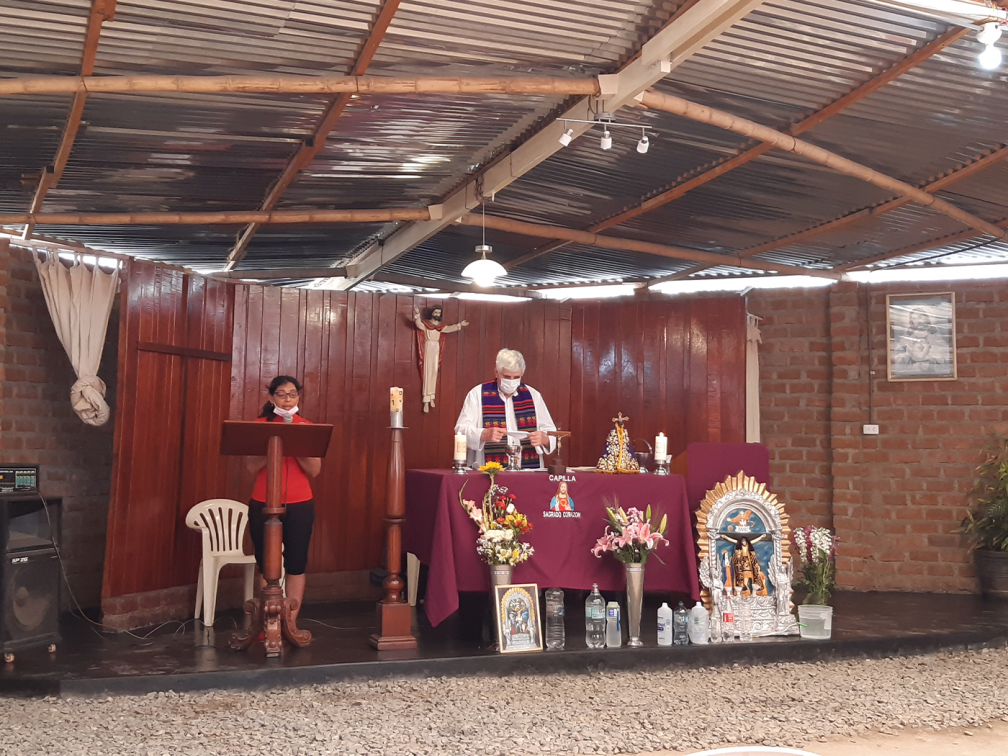Recently the President, Pedro Castillo, shuffled his cabinet and we have a new Prime Minister, Mirtha Vasquez, who, last year, in the previous Congress, was very successful as president of the Congress. This is a very popular move and a further six minsters have also been changed. The only disgruntled people are some of those in the party for which Pedro Castillo stood for president.
As for Covid 19 in Peru, the total number of cases are 2,183,025 and the number of deaths are 199,615 up to 9 October. The number of cases are now higher outside Lima (51.8%), and also the number of deaths are slightly higher outside of Lima (50.7%). The third Covid wave has not, as yet, been significant though an increasing number of the cases are from the delta variant. We are averaging 1,000 cases and under 50 deaths a day.
Peru has vastly improved on the vaccination front, with weekend all-night-long vaccination campaigns, presently reaching 21-year-olds and over. Hopefully, soon we will begin with the 18-year-olds and older. The population of Peru is now more than 33 million. Today’s figures for vaccinations, using the 2021 figures, is 50.4% of the total population with the first dose and 37.7% with the second dose. 75.5% of the population are 15 or over, and with that statistic we are looking at 66.8% of over 15s with their first dosage and 49.9% with their second.
I accompany Manuel Duato Special Needs School, a Columban project. The teachers have been in “virtual” contact with parents, and through them the children, since March 2020, even during the summer holidays. 2021 has seen teachers working virtually, with 428 students, the highest number we have ever had and most are severely disabled.
During 2020 we helped 55 Manuel Duato families on five occasions, with amounts around £25 each time, and at Christmas we gave £50. Three times in 2021 we have given out larger amounts to eight families, who either have a special needs child with Covid 19 or are families with a member or more with Covid 19 or another serious illness. We also gave smaller amounts to a further 32 families, all in dire financial difficulties. The last time was September to 32 students and their families.
The Warmi Huasi project accompanies children at risk in the Lima districts of Carabayllo and San Martin de Porres and in the Province of Paucar de Sara Sara, high up in the Andes mountains in the Department of Ayacucho. The work continues to produce amazing results. Our Warmi Huasi teams are in constant touch with the parents and teachers about the welfare of the children and adolescents. We have given out all the books, both in Lima and Ayacucho, from the reading clubs, so children can read at home. We also have radio programs with the children in Ayacucho, with bio-security advice, parenting advice and story-telling with the children sending in their stories. In Lima, the adolescents in Carabayllo have a whatsapp network communicating with over 1,000 children and adolescents, conducting surveys, last year and this year, as to their problems and relaying the answers to the local authorities for their attention.
These days we have teachers visiting homes, in a very limited way, in Lampa, Ayacucho, and also meeting in the homework clubs and Warmi Center in San Benito, in small numbers respecting protocols of bio-security and safeguarding, to help children catchup with their studies. These children have dropped behind in their schoolwork. Our three psychologists are working full time supporting emotionally the children and their families and also improving the social skills of the children and adolescents and the parenting skills of the parents, both in Lima and Ayacucho.
In San Benito, Carabayllo, the mothers continue with the five communal kitchens and in Misiones parish, San Martin de Porres, the pastoral agents run a communal kitchen for migrants and elderly people. In the six communal kitchens 180 families are helped, with an average of five persons per family. This means a total of 900 people receive a meal each day, plus 105 social cases, a grand total of 1,005 meals a day. We have helped each communal kitchen with the purchase of vegetables, chicken or fish, gas and bio-security equipment.
I am delighted to say that I am back in a parish, that of ‘Holy Archangels’ in an area called Huandoy, next door to where I was in Misiones. It is a massive parish, population-wise the size of a small diocese, with 180,000 people. There are 18 chapels of which, at the weekends, I accompany five of them, each twice a month, four on Sundays and one on Saturday evening. I also visit them during the week to do bible reflection, in a format that encourages personal prayer. I find the people resilient by nature but somewhat worn down, by the length of the pandemic, and grieving for those they have lost. Their standard of living has dropped and many young people have lost part-time jobs which means they cannot for the moment continue third level education careers.
Much thanks to all the families in Ireland, England, United States, Australia and New Zealand who have helped these families in Peru in our “solidarity between families” program.



